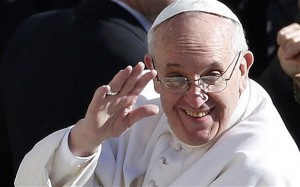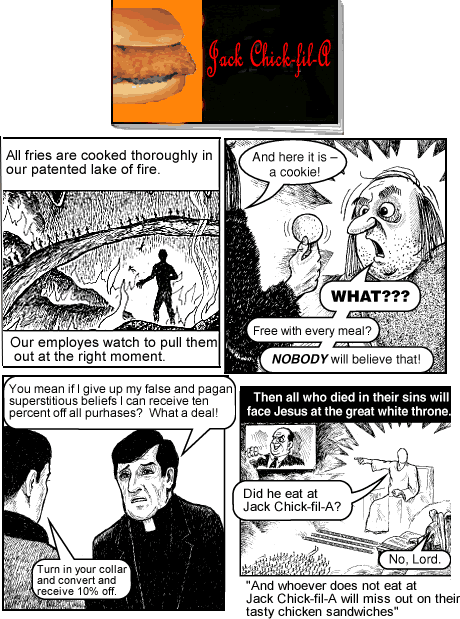 The charge by some atheists that “religion is a crutch” is rather common. When I was a atheist I had heard the phrase and instantly agreed with it. It was just so much better to live by pure reason and to know that when you die “that’s all folks.” I would think that to believe otherwise was just pure wish-fulfillment and escapism to deny the simple fact that “life sucks and then you die.” From time to time I would pondere moving from existence to nonexistence. Something both scary and comforting since when you blink out “you” won’t think about it anymore.
The charge by some atheists that “religion is a crutch” is rather common. When I was a atheist I had heard the phrase and instantly agreed with it. It was just so much better to live by pure reason and to know that when you die “that’s all folks.” I would think that to believe otherwise was just pure wish-fulfillment and escapism to deny the simple fact that “life sucks and then you die.” From time to time I would pondere moving from existence to nonexistence. Something both scary and comforting since when you blink out “you” won’t think about it anymore.
Some make the counter-charge that atheism is also a crutch. That and atheistic belief can be comforting and wish-fulfillment in that ultimately there are not consequences to your actions. You never have to repent of your own perceived faults other than what seems to cause external problems in your day-to-day life. This counter-charge might have some truth to it. Although I would suspect that it a rather small factor in atheism. Still I can only judge from what I have experienced. For most of my time as an atheist this charge would have been way off the mark. I held that atheism was true and self-evident and thus this was the purest reason to hold to it. This took a bit of a hit as I grow to realize my myriad faults were something beyond just faults but something even into the territory of sin. Yet “sin” was too theological and I thought surely using reason and will I could overcome those faults that I perceived caused damage in my life. I could overcome these eventually while being able to keep all those faults I liked or thought didn’t really matter.
All of the events that paved the way for me to being open to faith ultimately came down to the reality of sin and working very backward to the reality of God. In this backdoor it is not far to go from the reality of sin to the reality of needing a redeemer. When I read years later G.K. Chesterton’s reply to why he became Catholic “To get rid of my sins.“ I was able to totally relate. During this transition period there was a time as an atheist where I was forcefully clinging to my atheist faith trying to shore it up with atheist books and a dose of Ayn Rand. I realize now just how much I feared leaving atheism behind. I just could not hide out in agnosticism, but I did manage to spend a couple of years on the cusp of faith where I guess I had become a ”cafeteria atheist.” But atheism as a crutch was a valid way to look at this time as I was truly afraid to step forward because I knew I had so much to repent of.
Now “religion as a crutch” is a rather odd crutch. Such a crutch is more like the staff that turned into a snake. The reality of sin and the possibility of Hell is not exactly comforting. So if Catholicism is wish-fulfillment, you’re doing it wrong. Repentance rather sucks and slowly working on all those attachements to disordered things is a day-to-day struggle. Plus when your really start reading Jesus’ words you find that he could never have gotten a job on Madison Avenue. Sayings like “Pick up your cross daily”, “Be perfect, even as your Father in Heaven is perfect”, and “The servant is not greater than his lord. If they have persecuted me, they will also persecute you” are not exactly Gospel ad copy. If “Turn the other cheek” and blessing those that persecute you is wish fulfillment you need to get out more.
Despite this the joy of knowing Jesus and his love for me strengthens me. Yet I also know that I have many battles before me and most of them battles with my concupiscence – talk about friendly fire. There is also the reality where “religion is a crutch” rings true. When you are unable to walk by yourself a crutch is extremely useful. It isn’t wish-fulfillment to know that you are injured and need aid to help you walk straight. Really the problem in most of my life is that I thought I was walking straight when I was really hobbling along, When I am at my smartest I realize I have to lean on Jesus to move forward and am at my dumbest when I once again forget this and hobble along on my own. The crutch of the matter is really the crux of the matter and it is with carrying that cross that I have a crutch in which to follow Jesus.
Photo credit: Giuseppe Martino™ via photopin cc



